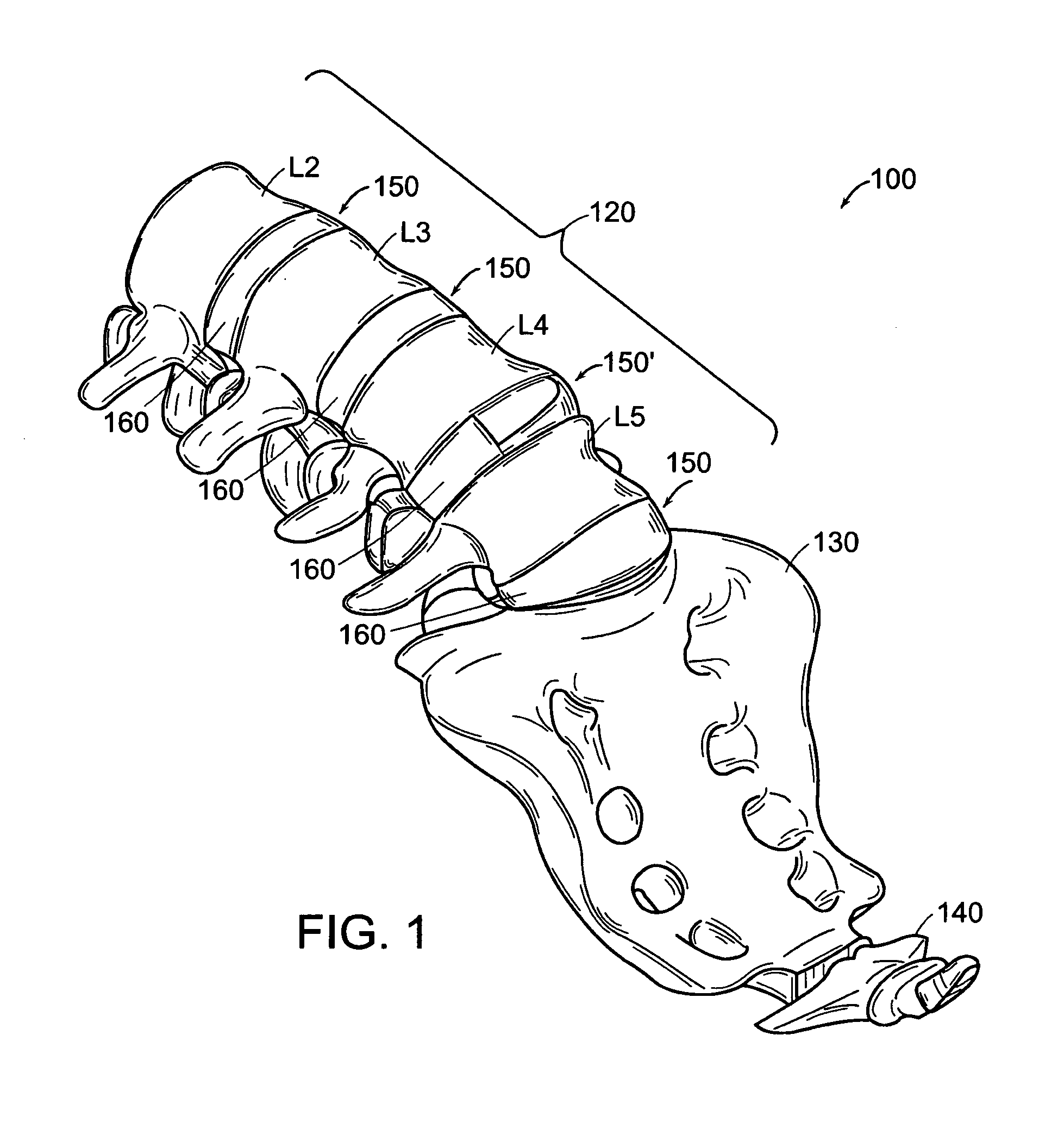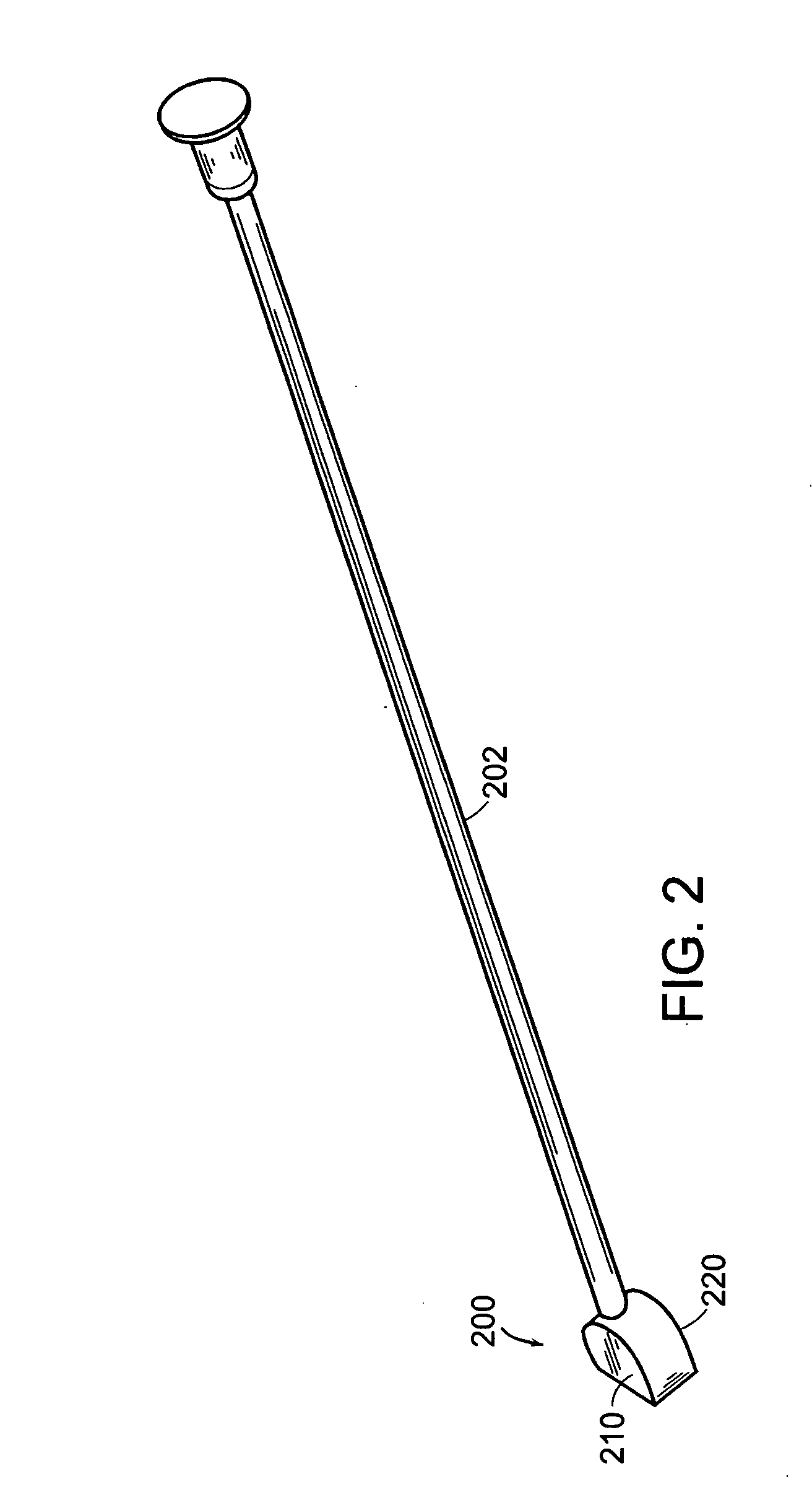Method and apparatus for implant stability
a technology for implant stability and stability, applied in the field of intervertebral discs, can solve the problems of narrow disc space, annular ligament bulging, and inability so as to achieve implant stability, improve intervertebral space stability, and improve stability
- Summary
- Abstract
- Description
- Claims
- Application Information
AI Technical Summary
Benefits of technology
Problems solved by technology
Method used
Image
Examples
Embodiment Construction
[0039] The foregoing and other objects, features and advantages of the invention will be apparent from the following more particular description of preferred embodiments of the invention, as illustrated in the accompanying drawings in which like reference characters refer to the same parts throughout the different views. The same number appearing in different drawings represent the same item. The drawings are not necessarily to scale, emphasis instead being placed upon illustrating the principles of the invention.
[0040] In general, the surgical procedure for implantation utilizes an anterior approach. During the surgery, a small incision is made in the abdomen below the belly button. The organs are carefully moved to the side so the surgeon can visualize the spine. The surgeon then removes a portion of a damaged disc. The implant is inserted into the into the intervertebral space. The implant stays in place from the tension in spinal ligaments and the remaining part of the annulus ...
PUM
 Login to View More
Login to View More Abstract
Description
Claims
Application Information
 Login to View More
Login to View More - R&D
- Intellectual Property
- Life Sciences
- Materials
- Tech Scout
- Unparalleled Data Quality
- Higher Quality Content
- 60% Fewer Hallucinations
Browse by: Latest US Patents, China's latest patents, Technical Efficacy Thesaurus, Application Domain, Technology Topic, Popular Technical Reports.
© 2025 PatSnap. All rights reserved.Legal|Privacy policy|Modern Slavery Act Transparency Statement|Sitemap|About US| Contact US: help@patsnap.com



